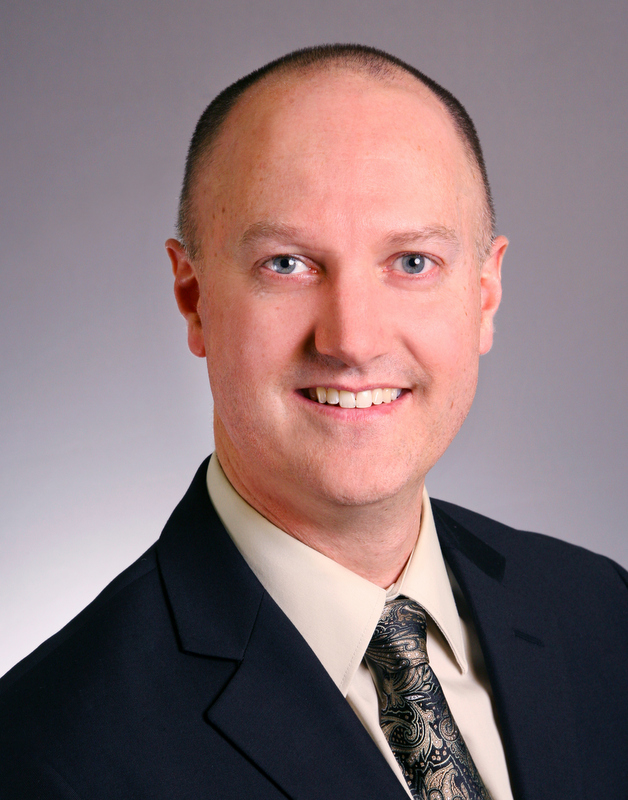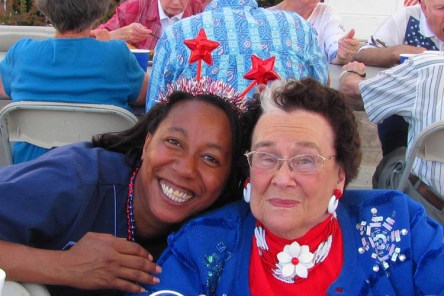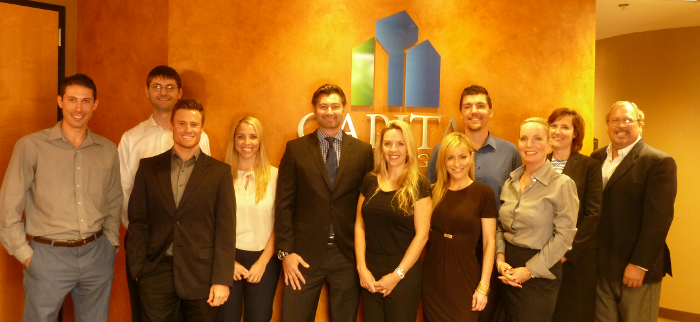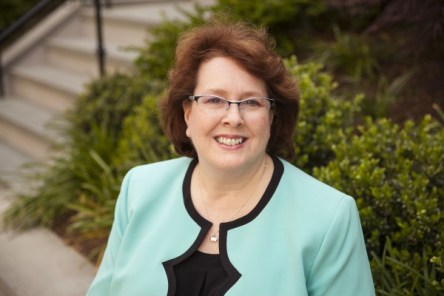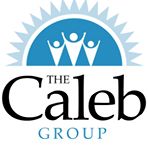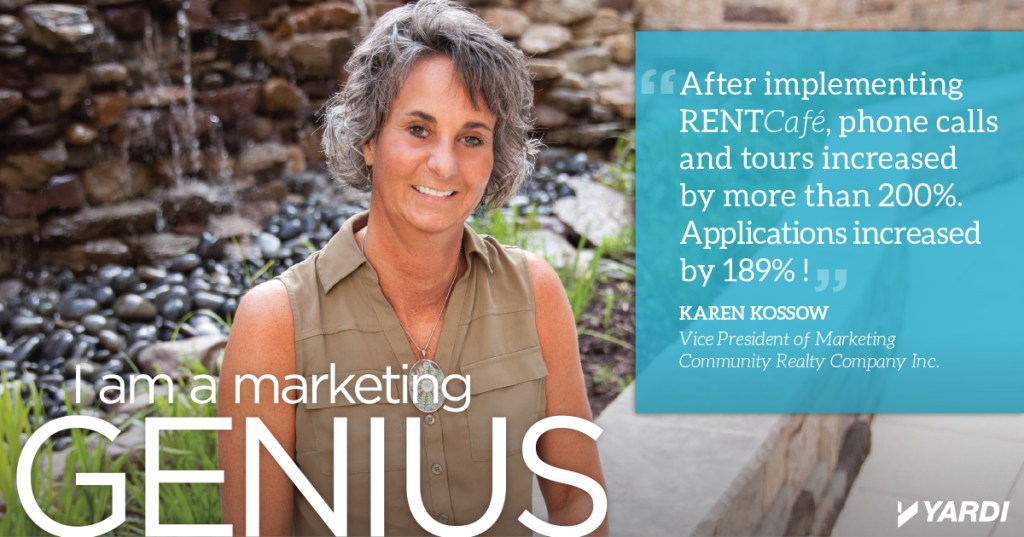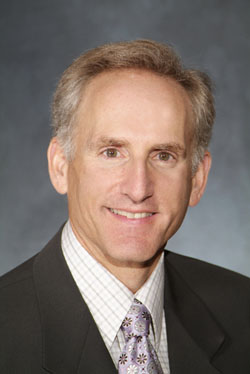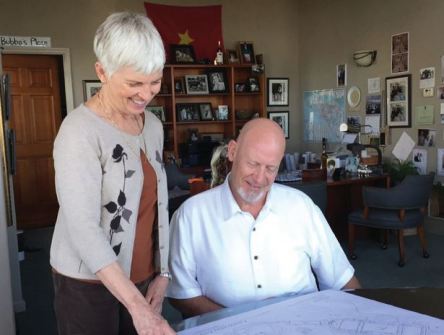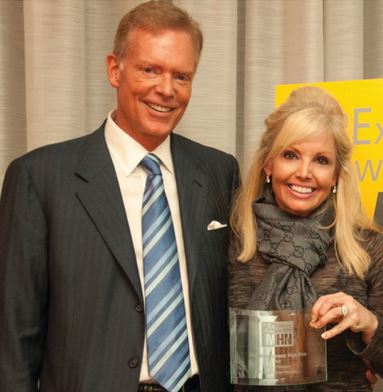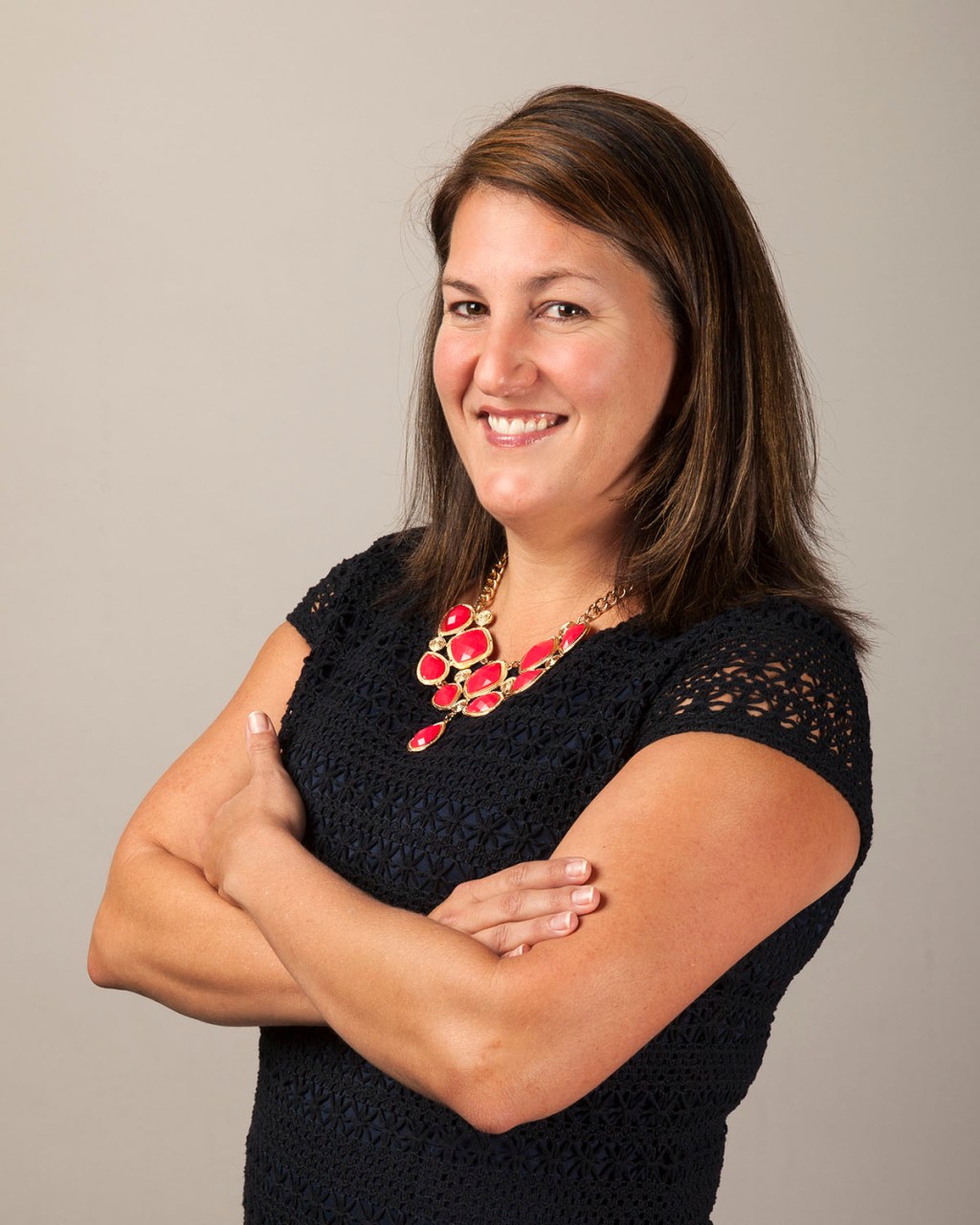Moving to Yardi’s cloud-based Voyager 7S platform was a big leap for Wilson Blanchard Management Inc., a Canadian condominium overseer. With responsibility for nearly 37,000 units in the Toronto and Golden Horseshoe area and offices in Toronto, Hamilton and Cambridge, the company is one of the largest and most respected condominium management firms in Canada. The company’s transition to the 7S platform was a big deal because not only were they moving away from a self-hosted software solution, but they jumped from a much earlier version of Voyager, Voyager 5, to the vastly improved and more intuitive 7S. “That was a big challenge, both from our standpoint and I think from Yardi’s standpoint also,” said Jeff Lack, manager of financial reporting for Wilson Blanchard. But moving to the cloud turned out to be one of the best technology decisions that Wilson Blanchard had ever made since the company began 20 years ago. Not only did it produce nearly immediate cost savings, but it saved time, enhanced productivity, and generated peace of mind. “The cost of being self-hosted, both the cost from a hardware standpoint and a maintenance standpoint, just wasn’t worth it anymore. It didn’t make sense to continue putting out that amount of money for servers, maintenance, software upgrades, and server upgrades,” Lack said. Transferring the responsibility for those items to Yardi created a streamlined system for troubleshooting and eliminated miscommunication between software provider, client and a third party IT provider. But there haven’t been many issues to troubleshoot, Lack relayed. “We really haven’t had any cloud specific issues, at all. There has been no downtime, no data issues,” Lack said. Among the efficiencies generated by Voyager 7S that Wilson Blanchard has appreciated are fast report generation using SSRS reporting. “It’s almost instant....
Implementation Support...
Yardi Professional Services
The Yardi Professional Services Group (PSG) is available to help clients get the most out of their new software as quickly as possible. PSG assists clients with project management, implementation services, needs analysis, data conversion, training and technical support. With the backing of PSG, clients can experience timely, seamless product implementation. JBG Companies is a management firm that supervises 24 million square feet of multifamily, retail, and hospitality assets. After using Yardi Voyager 6 for six years, JBG upgraded to Yardi Voyager 7S earlier this summer. Before conversion, PSG established a testing environment in which JBG managers could execute their daily protocols, edit menus and option settings. Adi Englander, Vice President of Financial Systems at JBG, explains how PSG supported her team during the tests. “We compiled everyone’s issues after each testing period and worked with Yardi to address and manage those processes,” begins Englander. “PSG originally sent a few process experts of their own to sit down with users and give them an overview of some of the changes that might affect their groups so that they knew what to look out for. [The users] were more prepared than just me telling them what I think those things may change.” PSG experts provided onsite, customized tutorials for personnel at JBG. Englander says, “We had the residential group sit with somebody from PSG, the management people, the construction guys, the commercial side, the lease admin– everyone sat with somebody from PSG for a few hours in the beginning.” The thorough testing and individualized attention made conversion a more efficient process for JBG. “We did not have a lot of problems in that area. I expected we’d have a lot of problems, that reports would just not run, but they continued to run,” Englander laughs....
A Hands-On Approach
To low income housing
Steve Moore endeavors to be an apartment owner who does much more than collect rents from his properties every month – and he wants other owners and investors to do the same. The Houston, Texas resident is a hands-on kind of guy who can not only fix an air conditioner or confront a problem resident, but has a determined vision for how to create change in some of Houston’s crime ridden neighborhoods. His company controller calls him the “MacGuyver of property management.” True to that label, Moore has some ideas that are daring and different. Villa Serena Communities, the company that he co-owns with two partners, manages over 5,000 multi-family units serving more than 12,000 Houston residents. One of those properties is Biscayne Apartments in Greenspoint, where Steve has lived on site for the last three years. We talked to him about his unique approach to providing a safe environment for residents. Why are you living in one of your communities, which is in a neighborhood known for high crime? Moore: Three years ago, we bought 2,600 units in one of the pockets of high crime in Houston. These units are right in the middle of the worst of it. I’m a widower, and I can do things that I couldn’t do if I had a wife. So I moved into Biscayne Apartments, which is the worst community we purchased. I said to my partners, if we’re willing to rent it to people, I should be willing to live in it. What has the experience been like? Moore: While I’ve lived there, I’ve had my car broken into, I’ve had my apartment broken into, and I’ve had a guy put a gun to my head and say give me your money. This is for...
Affordable Focus
Walla Walla Housing Authority
Amy Allred started her career in high-rise property management and commercial real estate development, working on major projects in Seattle. When she decided to relocate and take life at a more moderate pace, a new role as Finance Director for the Walla Walla Washington Housing Authority was the perfect fit. While working in large-scale housing development and high-rise condos in Seattle, Amy realized she yearned for a career with more meaning. She wanted the chance to make a positive and tangible impact, so she decided to trade her fast-paced urban lifestyle for something a little more rural with a hometown vibe. “I was working in Seattle and I realized I wanted more of a small-town feel, so I moved to Walla Walla,” says Amy. “The city is located in southeast Washington wine country, and it’s a beautiful place, with a slow-paced lifestyle.” She was hired as the Walla Walla Housing Authority’s new Finance Director four years ago. The agency is a Yardi client. “This position is a perfect marriage for me,” Amy said. “It combines my desire to give back to the community with my skills in real estate development.” The Walla Walla Housing Authority’s property portfolio may only be a fraction of the inventory available in a city like Seattle, but with 84 public housing units, 407 tax credit and market units, and 978 vouchers, there is still lots to do. “We’re not a huge agency,” admits Amy, “but we’re fairly good sized based on our county population and we are continuing to add inventory to our housing block.” Expanded Functionality During her time at Walla Walla, Amy has helped the housing authority expand and evolve. A team of 39 includes clerical staff, accounting, compliance and IT, property managers and inspectors, development, and...
Better Leasing with Yardi
Pyramid Management Group
In the fast-paced world of retail leasing, preparation for a client presentation is paramount. Managing the slide decks, floor plans, lease documents and other materials that make a lease pitch possible is no small feat. At Yardi client Pyramid Management Group, a commercial property manager handling 16 major indoor shopping malls in New York and Massachusetts, John Cico sought out a document management solution that would relieve the headaches experienced in the past. “Emails within Outlook were really not accessible by other people or organized in such a way that made it possible for us to go back and have another leasing rep pick up the trail from where it left off,” explained Cico, a Director in the company’s Finance department. But a centralized, cloud-based repository for documents wasn’t the only item on the wish list. He wanted a technology solution that would make his team of 35 leasing representatives and mall managers stand out in the retail leasing space. In a perfect world, it would support mobile on-site presentations to clients, electronically execute leases, and archive important documents for reference and reuse. As he explained Pyramid’s needs to the Yardi Commercial LeasingPad development team, Cico was impressed with their response. “It’s quite pleasing to see the amount of effort and time that Yardi will put into developing something that will truly work for us. From the start, and continuing today, Yardi has always been willing to listen and when things could be changed to accommodate our needs, they’ve always met that challenge,” Cico said. Knowing that a brand-new platform for document retention and process management wouldn’t be easily implemented overnight, Pyramid Management Group wisely implemented Yardi’s Commercial LeasingPad and Orion Document Management applications in stages. The intent was to not distract from signing leases as usual but rather, to focus on the efficiencies made possible with the new technology. “The real desire was not to impose such a huge learning curve on people initially that it would take the focus away from the leasing effort. We couldn’t slow down the production of our leasing reps, such that leasing for the next six months could be hindered. The idea was that we would try to phase the process in over a number of steps, to minimize the disruption of the leasing process,” Cico explained. No ill effects on performance have been noted thus far. In 2015, Pyramid Management Group has had a stellar year, matching their corporate performance from 2014 within the first nine months of the year. With leasing volume and occupancy high, it’s a good time to explore further opportunities to enhance the leasing process and keep improving production, Cico noted. The hurdle of individual skepticism about a new system, common in most real estate technology implementations, was effectively overcome by taking a gradual approach. Now 18 months into the process, “we are seeing our leasing agents become more comfortable with it. I think they understand some of the mistakes that they were making early on, and we have been able to correct those,” Cico said. Adoption of the platform is 100 percent. And he isn’t done making changes yet, either. Each morning at 6:30am, the Pyramid Management Group team gathers for an all-hands-on-deck meeting to discuss pending transactions and leasing progress. It’s a veritable war room of leasing strategy. Management of documents is key to its success, as team members present upcoming client pitches and trade ideas and feedback. In conjunction with LeasingPad, Orion Document Management has created quick and easy access to the presentation materials required. Ultimately, Cico envisions, the morning meeting will be even further dependent on Yardi technology. A digital, 3-D stacking plan customized for the company by Yardi has been a major first step. Moving walls and retail spaces within the mall is an important part of the leasing process, and only so much information can be presented on a 2-D, traditional...
Nicola Crosby Real Estate...
Yardi client profile
As a senior fund accountant working on a major North American real estate investment fund, Ping Li Chen is constantly looking for ways to generate efficiency in bookkeeping and produce accurate, timely reports for Nicola Crosby’s investors. “We use Yardi for all kinds of transactions – roll ups, consolidations, foreign currency conversions, bank reconciliation, basically everything we do on a daily basis,” Chen told us at the recent YASC conference in Anaheim, Calif. Her favorite aspect of the Yardi Investment Management platform is its ease of use. Nicola Crosby Real Estate manages $1.5 billion in assets, so monthly reporting is no small task. “With the click of a button, I can do the roll up, and it consolidates the whole portfolio. I find that amazing. It eliminated all the Excel spreadsheets that we once used to manually enter data, which we don’t have to do anymore,” Chen said. Prior to Yardi Voyager 7S, Chen estimated that manually completing the roll-up would have taken an entire month. Now, the process is about 10 days long from start to finish. In the coming year, her company will take another big step toward process efficiency by training its third party property managers to work within their Voyager 7S system. This will eliminate the need for exporting their external Excel records into Yardi on a regular basis. “That will save us a lot of time in generating reports,” Chen noted. Another Yardi product used being implemented by the Nicola Crosby accounting staff is PAYScan. “We will cut all the checks via EFT, so no more paper checks. And the property managers can import all the invoices directly from the vendor, so the asset managers are able to approve the invoices, and then it’s an easy process. Once we...
Training with Yardi
At Braddock and Logan
For more than 60 years, Yardi client Braddock & Logan has been a trusted real estate developer in the San Francisco Bay Area. The diversified home builder and property management company hosts a portfolio of more than 33,000 new homes built and sold, over 3,000 apartments, and 300,000 square feet of retail and commercial facilities owned and managed. We had the chance to chat with Jim DeMartini, Corporate Controller for Braddock & Logan. In his nine years with the growing company, DeMartini has welcomed new software systems and employees. During the most recent transitions, Braddock & Logan relied on Yardi eLearning, an on-demand employee training module. “The platform allows our regional managers to train staff in disparate areas around the West Coast. It makes it unnecessary to travel out to those sites to conduct the training – they can do it right from our headquarters,” he shared. DeMartini expanded on his experiences with eLearning. How has Yardi eLearning assisted you in your daily job? DeMartini: One of the key benefits that we gained from eLearning was to make it more than just a “training website” by creating more of an employee reference tool. Beyond the numerous training courses we offer, we also built out a comprehensive library of company-specific policies and procedures that can assist employees in their jobs on a daily basis. And not just Voyager-related content, but reference materials associated with other aspects of our business, such as homebuilding systems and procedures, to general employee onboarding information. We feel eLearning acts to supplement the employment-related information provided by our HRIS systems, which is not as easily customized and tailored to our company. How do you use eLearning at Braddock and Logan? DeMartini: Our property management business operates with a fair amount of...
Marketing Reality
In Senior Housing
Traditional senior housing marketing—idyllic stock photos and expertly crafted text– no longer stands out to prospects. A growing trend reveals the power of marketing that features real residents, their quotations, and their experiences at the community. Yardi client, Senior Star, is far ahead of the trend. The company made the decision to focus on resident-centric marketing more than 15 years ago. Letitia Jackson, Vice President of Corporate Engagement, explains, “We could think of no one better to represent what Senior Star does, why we do what we do, and who we serve.” Senior Star rarely uses stock images. A good stock image gains popularity and circulates throughout websites targeted towards seniors. Brands become indistinguishable. Jackson says, “We believe this may have a detrimental impact on organizational credibility.” In contrast, custom images add value to the prospect’s online experience. Branding is reinforced: the logo on staff uniforms, the color scheme in interior décor, and most importantly, faces that the prospects will recognize once they visit the site. Real residents come with genuine ties to the local community, which is a major win in most cases. “There is much to be said for the value in the local markets of a resident’s influence,” says Jackson. “Most communities in the industry have a resident or two who is well known or even a local celebrity. We know the power reviews carry; a resident who is known locally and is used in our advertising may be perceived as providing a tacit endorsement.” The same rings true for staff. “In addition to using residents, we also use actual Senior Star associates. It creates a degree of confidence and an early connection when someone who is considering our community actually encounters and recognizes an associate they’ve ‘met’ in our...
Growing with Yardi
Capital Asset Management
For Phoenix-based Capital Asset Management, use of Yardi software has been a key aspect of coming of age as a company. “Yardi has been one of our selling points,” says Aaron Strole, owner and founder of the company along with his wife, Rachelle. “When we talk to our current or prospective clients, we tell them that we use state of the art software – the best in the industry.” A full service firm that provides due diligence, underwriting, brokerage and property management services, the Stroles started their business in the depths of the recession. A client was looking for a reliable property manager for an asset that was on the market but not moving, and Capital Asset Management was born. Seven years later, the property management arm of the Capital Companies looks after 40 properties, and is now expanding its leasing operations. Assets are located in Arizona, California, and Nevada. “The maturation of our company has been key,” Strole said. “We aren’t just doing property management on the side, we’ve become a full service firm and what we’re doing for our clients is really good.” While growing their portfolio and span of operations, Capital Asset Management has evolved its software platform as well. The company moved quickly from Yardi Genesis to Voyager 6, and then upgraded to the Yardi Commercial Suite and a full cloud-based platform in 2014. “7S is a true cloud version of Voyager. We don’t have to ask for the updates, they are rolled out for us. Everything is available wherever you need it. I carry around my iPad now, all the time, because I don’t want to carry around my laptop. And I can get access to everything in Voyager that I need,” Strole said. A former IBM Management Consultant, Strole is working to make his company as paperless as possible. He moved his corporate email to a cloud-based server and eliminated any need for in-house technical support. The result, he says, is peace of mind. “What I like about it is that when everything is hosted in the cloud, things tend to not break. We were having our on-site server go down and we once lost all of our server data. It took three days to get the backup replication up and running. You don’t want to have tell your clients that you can’t send them the report they need. Now, if it does break, I call Yardi or Microsoft,” Strole said. He next plans to look into paperless invoice remittance via ACH transfer. Another aspect of the Voyager 7S platform that Capital Asset Management is happy with is the Report Scheduler functionality. “One of our biggest clients, a national company, told us that they asked every one of their property managers around the country to use the same report package that we had been creating for them in Yardi,” said Strole. For more information on The Capital Companies, visit http://thecapitalcos.com/ For more information on Yardi, visit...
Prologis
Sustainability starts at home
Prologis, the global leader in industrial real estate, is a master of sustainable growth. With more than $56.0 billion in assets under management and 670 million square feet of real estate, the Yardi client has never been stronger. Prologis has consistently focused on delivering quality products and exemplary service to its global customer base. The company has earned international accolades for sustainable business practices, smart management and global competitiveness. I recently sat down with Arthur Nelson, VP Global Business Systems, for insight into their success. Progress on a global scale Corporate Knights Global 100 has named Prologis one of the World’s Most Sustainable Corporations for seven consecutive years. Prologis outperformed its international peers across 12 key performance indicators, demonstrating that the company’s enduring focus on sustainability is working. “We place high value on being a responsible corporate citizen,” Nelson explained. “One key element of that commitment is developing to internationally recognized sustainable building standards including LEED, BREEAM, CASBEE, HQE and DGNB, with the goal of certification.” In 2014, the company achieved sustainable building certifications for 27 new projects totaling 9 million square feet. The Prologis platform now boasts more than 53 million square feet of sustainable building certifications. Resource reductions are a consistent corporate priority. By the end of 2014, 68 percent of the company’s global operating portfolio had been upgraded to energy-efficient lighting. Prologis’ rooftop solar initiative has interconnected over 112 megawatts of renewable energy since 2007. In total, energy savings from energy-efficient lighting and renewable energy systems is equivalent to 400 million kWh. Cool roofing covers more than 31 percent of the company’s rooftops, reducing energy use by up to five percent in air conditioned spaces. In addition, Prologis has set goals to: Reduce energy consumption across the global portfolio 20 percent...
Russell Tepper
Mill Creek Residential
With a quickly expanding footprint, Yardi client Mill Creek Residential is one of the nation’s largest multifamily developers. Last year, the company ranked No. 2, behind Alliance Residential, in number of units delivered. 2015 has already been another strong year for Mill Creek, with delivery of 7,000 units anticipated – up from just over 5,000 in 2014. We recently had the chance to chat with Russell Tepper, Senior Managing Director for Mill Creek, who shared his insights on development trends and renter behavior patterns. Tell us about a few of the multifamily trendlines you’re seeing specifically in the markets you oversee – New York, New Jersey, Connecticut and Philadelphia? Tepper: One of the most significant trends we’re seeing is the importance placed on enhancing the quality-of-life experience for residents. Many of today’s renters are young professionals (a.k.a. the millennial) that expect a hotel-caliber level of service and amenity package. This means going beyond a nice fitness center. Yoga studios and spinning, indoor storage for bikes and cold food, pet spas, home office spaces, rooftop decks and deluxe clubrooms have become de-rigueur. Another trend we’re seeing is the “renter-by-choice.” Young professionals and empty nesters are not as interested in purchasing a home as they once were. The reasons for this vary, but, across the board, we’re seeing that people would prefer to avoid the hassles and long-term commitments associated with owning a home. Renting provides both the flexibility and premium living experiences they seek. Finally, in the New York metropolitan area, if there is a train station nearby, there is a high likelihood that a new multifamily community has opened or will open in the near future. And if that’s not the case, there is an even greater likelihood that a developer is in the...
Repurpose + Revitalize...
Congregate Housing Management
The concept of home comes in many shapes and forms. For the senior residents of South Hills in Pittsburg, home arrived in the shape of a high school. A school was probably one of the last places that seniors thought they would spend their golden years, yet Yardi client Congregate Management Services and its development arm a.m. Rodriguez Associates saw an unparalleled opportunity in the vacant property. Account Manager Terri Zaegel recalls the conceptualization of the senior housing community. “The City actually came to Anthony Rodriguez and said, ‘We have this huge, beautiful building. We don’t want it torn down. We don’t want that space just vacant. Can you help us out?’ He developed it into housing for seniors.” Rodriguez, founder and chairman at Congregate Management Services, has gained a reputation throughout the region for his ability to transform vacant commercial and industrial properties into beautiful multifamily housing. His gift is helping small cities and towns breathe new life into some of their most challenging neighborhoods. The repurposing projects prevent economy-crippling urban decay. According to the Pittsburg Community Reinvestment Group (PCRG), a study in nearby Philadelphia reveals that houses within 150 feet of a vacant or abandoned property experienced an average net loss of $7,627 in value. Governments lose significant tax revenue on vacant properties as well, sometimes averaging as much as 83 percent of the owed balance. There is a strong correlation between vacant properties, an uptick in the cost of municipal services, and an increased crime rate. The PCRG report states that “41 percent of abandoned buildings could be entered without use of force; of these open buildings, 83 percent showed evidence of illegal use by prostitutes, drug dealers, property criminals, and others.” Arson and vandalism are among other crimes that plague neighborhoods with...
Debra Nutter
CEO, The Caleb Group
Debra Nutter, CEO of the Massachusetts based The Caleb Group, wants not just to house affordable residents, but to change their lives for the better. As a result, Nutter’s non-profit housing organization is encouraging HUD to expand its support for life skills programming to private non-profits, in addition to public housing authorities. The effort is in the early stages, but Nutter believes that The Caleb Group, a Yardi client, has good chance to move it forward. “HUD is providing us with (assistance for) rental income, but not allowing residents of privately run developments to access this same money for social services,” Nutter said. “It bothered me that they were not allowing residents of privately run developments to access this same money.” One of the main areas of concern with residents of Caleb Group properties is their inability to save money and plan for the future. Nutter describes residents who get stuck in a cycle of poverty – even to the extent that they might leave or turn down a higher paying job in order to keep their rent subsidies. “Can’t figure out how to jump off that cliff, so they get to the edge of it and then just walk away again,” Nutter said. Breaking the routine takes more than self-motivation, and outside coaching can make a big difference. A recently completed Caleb Group pilot program, run by a contractor called Compass Working Capital, focused on the value of saving, the importance of a plan to resolve personal financial crises, and personalized coaching to put that plan in motion. Sandra Suarez, Operations Manager at Compass who manages the partnership program, provided insight into how such personalized attention and programming can help. “For the families we work with in this partnership program, it’s a daily...
Housing and Helping
The Caleb Group
At the Caleb Group, a home is much more than just a place to rest at night. The affordable housing provider, based in Swampscott, Mass., aims to improve the lives of its residents. With a strong foundation of community service created by founders Joan and Warren Sawyer, the Caleb Group has been doing good works for more than two decades. The company, a Yardi client, was recently recognized in its hometown paper, The Daily Item, with a write-up that tells the touching story of how the Sawyers, motivated by faith and a desire to help out their community, founded the company in 1992. Their original vision of service and support for residents remains strong today. “Housing itself isn’t enough. Residents and their communities flourish when they are supported by the kinds of programs and resources that Caleb’s Service Coordinators and Community Opportunity Centers provide,” the company’s website explains. Programs for residents access to services and resources that foster “community engagement, financial stability, health and family support, and youth programming.” More than 4,000 residents in 21 communities benefit. Literacy, financial counseling, continuing education and work experience are among the offered programs. The good works don’t end there. The company also provides support to Abbott House, which houses formerly homeless families in Dorchester, Mass, and an international home for domestic violence victims in San Juan del Sur, Nicaragua. Family values are strong within the company leadership. The Sawyer’s daughter, Debra S. Nutter, is President and CEO. She was a founder of the company. Her parents still serve on its Board of Directors. Yardi salutes the Caleb Group for its exceptional community service. Read more about how the company has helped residents change their lives for the...
Karen Kossow
Genius at Work
Community Realty Company is a leader in property management, leasing, and asset management for income producing properties in the Washington D.C. area and beyond, enhancing values for owner-investors and known for providing an exceptional tenant experience. We recently enjoyed an interview with Karen Kossow, Community Realty Company’s Vice President of Marketing. She talked about industry trends that are changing the way multifamily does business and shared her advice for other apartment marketers. Whether you’re an experienced pro or just getting your feet wet, we’re sure you’re going to learn something from Karen, that’s why we recently selected her to be our newest RentCafe Marketing Genius. How long have you worked in multifamily? Kossow: This is my 25th year in the industry. I started out as an activities director immediately after college and just kind of fell in love with multifamily. It gets under your skin. As the VP of Marketing, where do you find that you spend the majority of your time? Kossow: We are small. We don’t have an internal IT group. RentCafe has become such an important piece of our marketing; I spend time getting our teams trained and to buy into it. Beyond that, a lot of my week is spent analyzing results. What’s working on our websites and what’s working in the industry in general. What do you see happening in the industry right now? Kossow: We’ve heard all about the Millennials for the past five years. But to me, one of the biggest trends is really having to touch more demographics at one time than we ever have before. The Boomers are also coming in, and they’re looking for a lot of the same things the Millennials are… and they have the money to pay for it. Although the Boomers and Millennials want similar amenities, they search for apartments differently, using media in different ways. So we have to use more marketing channels today than we did in the past. And we have to make sure we’re using them appropriately to reach all the different kinds of renters. So you’re seeing a different mix of renters today than when you first started? Kossow: Yes, at one of our lease up properties 39% of our renters to date have sold a home to move in with us. What are your thoughts on online ratings and reviews? Good, bad, or necessary evil? Kossow: Definitely good for converting prospects. We put our reviews right on our websites for a couple of reasons. For one thing, it keeps visitors on your site, instead of sending them to find reviews on outside sites. For another, building changing content into the site is good for SEO. How do you solicit reviews from your residents? Kossow: We use the email tool within RentCafe to solicit reviews that we add to our sites. Then we take it a step further and make video testimonials that we embed into our landing pages. When you hit one of our property sites, within seconds you’re hearing residents talk about their experience (see it in action here). Prospects are automatically hearing something positive as soon as they find us. We’ve had people come to the property and specifically mention the impact of the videos. It’s definitely impacting our results. Why RentCafe? Why Yardi? Kossow: Having everything on one platform allows us to be more aggressive. Yardi really cares about our industry and our needs. Working with the team has been a hugely collaborative process. Sometimes it seems like anything we think of, voila it’s done! RentCafe’s capabilities evolve to match our requests. It’s always getting better, which is great. So is your day-to-day all marketing, all the time? Kossow: At work, yes, but outside of work you will find me tackling more physical challenges, including a recent surf camp I attended in North Carolina where I got my first nosebleed ever! Minutes after wrapping up our...
Michael Newman
Principal, Golub-GetHouse
When Michael Newman and Eugene Golub began their first commercial real estate deal in Poland, one of the first things they learned was that there was no Polish word that directly translated to “developer.” “The office market there was occupied by state owned companies in state owned buildings. No first class or modern office space really existed,” Newman recalled of their first trip to the city in 1989. But that was about to quickly change, and GOLUB was the first U.S. developer to begin building in the Polish capital city of Warsaw, breaking ground on its first building there in 1991. Today, their Polish arm is Golub-GetHouse (GGH). The fall of the Berlin Wall in November 1989 charted a course for the gradual opening of Eastern Europe and enhanced economic opening for domestic and foreign companies alike. Berlin also played a role in Golub’s journey to Warsaw. While working on another project with a Berlin-based company in 1989, Poland was pitched to them as a potential opportunity. “At first, we were hesitate to go behind what was then the Iron Curtain,” Newman recalled. “But hesitation gave way when we realized it was a historic opportunity.” Read on for more insight from our conversation with Michael Newman: What were the early challenges as you began working in Warsaw? Newman: What we had to explain was that they were more used to “contractors” – the norm was state-owned buildings owned by state-owned companies. There wasn’t really a concept of privately owned land and buildings. There was some funny nuance to explaining that a developer wasn’t a builder, but that the developer puts all the pieces of the private transaction together. For our first project, our development team acted as the general contractor and hired subs directly,...
Honoring Veterans
SilverCrest Properties
Yardi client SilverCrest Properties is a growing senior housing specialist with a heart the size of Texas. At its properties in Minnesota and The Lone Star state, the company strives to make the golden years some of the most enjoyable and rewarding years of residents’ lives. One initiative, Honor Flight, has become a definitive moment for countless seniors and staff. As part of its senior services, SilverCrest partners with Honor Flight to offer life-changing travel experiences. Honor Flight is a non-profit that acknowledges America’s veterans by providing no-cost transportation to the nation’s war memorials in Washington, D.C. Neal Frisch, Director of Finance at SilverCrest, has experienced the Honor Flight as a guardian. “Honor Flight is amazing,” he reflects. “It’s something that we like to do. We’ve contributed to probably a dozen different flights.” For Honor Flight, SilverCrest veterans and their staff guardians depart for D.C. before sunrise. They embark on a tour to the World War II Memorial, the Vietnam War Memorial, and the Korean War Memorial. “Many of them have never been to D.C. before. They’ve never seen the memorials,” says Frisch. “There is a big push, health wise, to get them all up to D.C. so that they can see their memorial.” Each veteran responds differently to the monuments erected in their honor, making the experience unique for guardians no matter how many times they attend. “One of my coworkers took a veteran who told him stories that he’d never told anybody else, not his kids, not his grandchildren. They sat at the Iwo Jima memorial and he cried and told stories for 45 minutes,” says Frisch. After reviewing the memorials, Veterans return to their SilverCrest communities on the same day. The return is a joyous celebration. Frisch recalls, “There was one...
Oakmont Senior Living...
A stellar senior standard
Many couples would deem themselves successes to have raised five children. Bill and Cindy Gallaher not only did that, but also founded and built senior community developer/builder Oakmont Senior Living in Santa Rosa, Calif. For good measure, they also founded an international adoption agency. Married for more than 41 years, the Gallahers brought two daughters into the world and adopted three other children. Along the way, they’ve built more than 40 senior communities, including assisted living, independent living and continuing care retirement communities. But they have no intention of resting on their laurels. Currently under construction on four sites, they expect to begin construction on as many as a half dozen additional locations this year. Last year, Oakmont Senior Living captured the 2014 MultiHousing News Excellence Award, Best New Development: 55+ for its Fountain Grove Lodge in Santa Rosa, Calif. The development is the nation’s first independent senior community for lesbian, gay, bisexual and transgender individuals, with the option of continuing care services. The prospect of working with a partner didn’t appeal to the Gallahers, but the idea of building for the LGBT community did because they felt it would fill an important social need. The initial project undertaken in 1978 by Bill and Cindy Gallaher was a small spec house in Davis, Calif. Cindy’s contribution was choosing the finish material, and helping with some construction tasks. Bill handled the rest of the project himself, from drawing the plans to the finish work, Cindy recalls. “From that small beginning to the current day, we have worked as a team in all our development and construction projects,” she said. “I believe our success, both as a couple and as partners in business, has been rooted in a division of labor, and in the deep respect...
Jeffrey Kaftan
Kaftan Communities
As Detroit’s economic recovery continues, the market for modern, mid-price range apartments in popular neighborhoods like Midtown, Royal Oak and Troy is strong. Homegrown multifamily provider Kaftan Communities is celebrating its 50th anniversary as a developer and property manager this year, and has responded to the trend by changing its corporate focus. No longer building apartment communities from the ground up, Kaftan Communities is instead focusing its efforts on strategic repositioning of assets – including remodels and updates that appeal to Detroit’s largest group of renters: young urban professionals. CEO Jeffrey Kaftan describes this renter as someone who appreciates name brand fashion or wants to drive a luxury import auto rather than an American car. “There are people who want a cool place, want to be in a certain location, and I wasn’t sure many existed. There were some nicer places, but as far as cool places, there really weren’t a lot,” Kaftan said. His company has redone three such buildings off of Metropolitan in Royal Oak, and is calling the trio Metropolitan Flats. Kaftan told us about the history of his company and its new focus going into the next 50 years. How did Kaftan Communities start? Kaftan: My father started the company as a building company in 1955. As he tells the story, the nightstand next to the bed was his desk. He started building homes, and things started to go really well very early on. At the end of the year, he sat down with his accountant and realized how much he had to pay in taxes. He was lamenting to a mentor of his about all these taxes, and that mentor suggested that from an investment perspective, it might be wise to build apartments. How large is your portfolio today?...
A Day in the Life
Leslie Dabi, EAH Housing
At Yardi, we know that the software we create for our clients becomes not just a tool for better business management, but a platform that becomes a major part of their daily lives. Our clients help us understand the business challenges that they face on a daily basis, and in turn, we work to develop increasingly advanced solutions that improve efficiency and make life easier. Earlier this spring, one of our clients in the affordable housing industry, Leslie Dabi of Marin County-based EAH Housing, invited us into her life to see why she’s passionate about her work as Business Systems Director. For 45 years, EAH Housing has built a portfolio of residences that today serve over 20,000 seniors, families, students, people with disabilities, frail elderly and the formerly homeless. We also learned a lot about Leslie’s everyday life. She loves interacting with the site staff at each of EAH Housing’s Bay Area communities, spends free time with her family and walking her dog, and is especially passionate about the San Francisco Giants baseball team. We joined her as she had the chance to take the field at AT&T Park and steal second base – a true thrill for any baseball fan. Join us as we take a look at a day in the life of just one of our exceptional Yardi...
Meet the Fifields
A winning real estate duo
When Steven and Randy Fifield discuss what sets their company apart from its competitors, they often use a hockey analogy. They speak of being able to “anticipate where the puck is going,” as Randy Fifield says. It’s a fitting metaphor to describe the couple whose companies, Chicago-based Fifield Companies and Los Angeles-based Century West Partners (a Yardi client), have developed such trendsetting properties as Alta at K Station and The Californian on Wilshire. The Fifields display a Gretzky-like ability to visualize the course of action before it happens and be there before their rivals. That’s true whether they’re blazing development trails on the fringes of Chicago’s Loop or rigorously researching the lifestyle passions of distinct renting cohorts in L.A.Little wonder Fifield Companies captured a 2014 MHN Excellence Award for Best New Development: High-Rise with K2, its 34-floor, 496-unit apartment community in Chicago’s increasingly hot West Loop. In February, the couple unveiled their newest Chicago-area project, E2, a 356-unit luxury residential tower in near-north suburban downtown Evanston. Charles Huzenis, principal of Chicago’s JRG Capital Partners, has been a real estate investment partner of the Fifields for 10 years. “They have great vision well in advance of others, and that’s totally displayed in their K Station projects,” he said. “When that deal first got going, it was kind of no man’s land out there. Nobody was willing to bid on those deals when it was just raw land. Now every institution in the country wants a piece of that area.” Elissa Morgante, principal of Evanston’s Morgante-Wilson, an acclaimed, high-end residential architectural firm, served as architectural interior designer at E2. “They are very passionate about what they do,” she said. “They have a vision. They give you direction as far as the uniqueness and ‘wow’ they want....
Vaughan Metropolitan Centre
Transit Centered Design
Building along public transit lines has long been a popular way to ensure that traffic flows easily to a retail property. A lack of transit options does not have to deter an otherwise promising development. At Vaughan Metropolitan Centre in Canada, Yardi client Calloway REIT demonstrates how to build smart, minimize sprawl, and convince transit authorities to collaborate when funds are scarce. Calloway has built its reputation on creating strategically located shopping centers of exceptional quality. When considering the next project, team leaders took a few factors into consideration: Canada hasn’t seen the construction of an enclosed shopping mall in over 20 years. The City of Vaughan is growing but lacks an adequate downtown to meet the expectations of businesses and residents. The market was ready for something big, new and exciting—without the downside of urban sprawl and traffic congestion. Calloway, in a 50/50 joint venture with SmartCentres, stepped forward to address those factors with a project in the burgeoning Vaughan Metropolitan Centre (VMC), a pedestrian-friendly hub for businesses, residences, and entertainment. Calloway’s carefully selected locations can be easily accessed by more than 85 percent of Canadians. Keeping with this tradition, the company selected a 50 acre portion of a 442-acre parcel in Vaughan, part of York Region northwest of Toronto, as the project’s site. It was ideal for Vaughan’s new downtown and it had ample space for retail, office, and residential accommodations. There was only one major problem: transit lines stopped in Toronto nearly 25 miles away. A lack of transit access would adversely affect the ability to fund and market the project. Studies by Urban Land Institute state that 91 percent of public leaders regard transportation infrastructure quality as the top influencer of real estate investment and development decisions. 86 percent of private leaders rated transportation infrastructure as the second highest priority. The households of the future—Gen Y and Millennials—are steadily seeking out neighborhoods and employment centers that facilitate public transit use as an alternative to car ownership. Public transit tops many lists, and the vision of VMC couldn’t thrive without it. Though the importance of public transit is growing, the City needed an incentive to direct its limited funds to a transit station at VMC. APTA recorded $2,205.6 million regular users bringing in a total operating revenue of $3,762.7 for all of Canada. Those figures aren’t groundbreaking, but studies suggest that the profitability of public transit will only improve. If the City of Vaughan wanted to grow, it was in its best interest to support the vision of VMC. The three entities met halfway. Calloway and SmartCentres donated 2.5 acres of land to Toronto Transit Commission (TTC) for the new station. “People ask, ‘How did you strategically make this happen?’ As stupid as it sounds, we just waited for the phone to ring,” laughs Rudy Gobin, Executive Vice President of Asset Management at Calloway REIT and former Executive Vice President, Finance and Operations of SmartCentres. “We already owned the land. The City called and said they wanted to put a subway stop on the street edge of the property. It took us about six months to negotiate this but we said, ‘Why don’t you put it in the middle of the property and we’ll give you the land?’ They wanted 2.5 acres of land in the middle of 50 acres. They said sure and that was that. And of course, we then acquired additional land nearby.” Toronto York Spadina Subway Extension Project provided additional funding. The construction on Vaughan Centre Station at VMC was soon underway. Vaughn Centre Station will connect residents of York Region to Downtown Toronto. The new station will be the northernmost point along the TTC network, and only the second station operated by TTC outside of the City of Toronto. Mitchell Goldhar, President and Owner of SmartCentres says, “This joint venture with Calloway will leverage the strengths of both companies and will...
Miller-Valentine Group...
Stylish Senior Living
As the nation’s apartment industry revels in Gen Y’s affinity for apartment living, developing high-density, high-amenity projects in urban centers across America, there is another force shaping the industry: aging Boomers. In 15 years one in five Americans will be 65 and older and the 50-plus generation will swell by 23 million individuals, reaching 132 million, data from the Joint Center for Housing Studies of Harvard University shows. This high-velocity growth is already spurring concern within the industry in regards to providing adequate housing to the nation silver-haired demographic. One company that has its eye on the future and is planning to meet the needs of aging Boomers is Miller-Valentine Group (MVG). Founded in 1963, Miller-Valentine has been developing, building and managing multifamily housing for over 30 years. The company’s portfolio includes both luxury and affordable housing, as well as senior and military housing. With a presence in 17 states, MVG is the 24th largest owner of affordable real estate in the country and has developed in excess of 13,000 units. While the company continues the deliver non-specialized apartment housing too, shifting American demographics are evident in the company’s development pipeline. Of the seven apartment communities that will open through summer 2015 three are designed for adults 55 and older and one is targeting residents 62 and over. Miller-Valentine’s independent living communities are designed to meet the needs and desires of adults over the age of 55. MVG collaborates wit h federal and state housing assistance programs to deliver quality housing for aging adults at a moderate price. To accommodate the active lives of its residents, MVG offers home maintenance-free independent living, with amenities such as community rooms, walking paths and community events, ensuring social, educational and recreational opportunities. One such community is Ashley...
Wood Residential
Seeking enhanced efficiencies
With demand for new, high-quality urban apartment projects on the rise nationwide, Wood Residential has been busy. Parent company Wood Partners builds, positions and then sells Class A apartment communities in the nation’s most popular major cities. Wood Residential’s job is to lease up the properties at the highest rate, providing a strong residency foundation for incoming ownership. Wood Residential Services launched in 2010 with three properties and less than 1,000 units in its portfolio; it expects to close the 2014 calendar year with 41 properties and 10,000 units under management across the country. As Vice President of Operations Jillian Kral recently explained, those numbers are always in flux due to the company’s business model, which makes her job challenging and exciting at the same time. “The challenges are all very positive. Things move quickly, giving us a very short window to execute as a merchant builder. If we miss that window, we don’t get another chance to try again and we’ve lost opportunity and profit for our developers,” Kral said. A 9-year Wood Partners veteran, she worked her way from the sales and marketing side of the business, to asset management, and now focuses on technology, operations, policies and team building. In order to create the smartest process for lease-ups, stabilizing properties and then turning them over, Kral and her teams have adopted an increased number of Yardi products. Over the last two years, they will have implemented the bulk of the Yardi multifamily single solution stack. “With most of our portfolio, we have a 12–18 month hold time which is why it’s so important for us to have streamlined processes and efficiencies that focus on sales while increasing rents and velocity, ultimately resulting in a profitable sale of the property. The first...
New Directions
Helping with housing
Since 1971, New Directions Housing Corp has committed to building and preserving a sense of community. The Kentucky-based nonprofit has expanded its portfolio to include real estate development, asset and property management, resident services, home ownership preservation, and community building and organizing. “I don’t know what we do, but we have to find a new direction,” uttered Father Ben O’Connor to his parish. In 1969, the group had the will to help their struggling community but was unsure how to go about it. One small housing project followed another. Soon, outreach efforts extended beyond Louisville, Kentucky and into Floyd and Clark counties of southern Indiana. Today, New Directions Housing Corp, a Yardi client, manages 1,000 affordable housing units, renting to nearly 1,000 low-income families. The organization repairs and restores approximately 200 houses each year, focusing on projects that help the elderly remain in their homes while creating safe, accessible abodes. New Directions has joined forces with NeighborWorks America and Metro United Way to achieve their goals. To address the unique needs of every community, New Directions hosts The Neighborhood Roundtable every two months. Community members gather to create practical, efficient plans that will make their neighborhoods more stable and cohesive. Residents can take pride in the changes that take place because they are an integral part of the process. They work side-by-side with New Directions volunteers and staff. “We don’t just work here. We believe in what we do and give 150% to our mission,” states Bridgette Johnson, Director of Property Management. There are numerous ways to get involved but Repair Affairs have become the most popular event for volunteers and staff members. “We start really early with a kickoff breakfast around 6am,” explains Janice Hill, Management Information Systems Director. “Some volunteers help with...

